-
September 21, 2016
The New Art of Making Books. Ulises Carrión and expanded publishing
11:00 - 11:30 a.m.
Guy Schraenen. The Tongue of the Poets11:30 - 12:00 a.m.
Javier Maderuelo. Expanded Writing: Mail Art and Archive12:30 - 2:00 p.m.
Luigi Amara and Heriberto Yépez, in conversation. The Carrión Effect on Visual Arts and Contemporary Literature2:00 - 4:00 p.m.
Continuous screening of the following films by Ulises Carrión:
A Book, 1978, 8’
The Death of an Art Dealer, 1982, 19’ 57’’
Gossip, Scandal and Good Manners, 1981, 45’
The LPS File, 1985, 35’39’’
TV Tonight Video, 1987, 10’4:00 p.m.
Guided tour around the exhibition Dear reader. Don’t read, by its curator, Guy Schraenen4:30 - 5:00 p.m.
Felipe Ehrenberg. Digressions: Memories of Carrión5:00 - 5:30 p.m.
Raúl Marroquín. In-Out Center. Cárdenas, Carrión and Marroquín (1972-’75)5:30 - 6:30 p.m.
Round-table discussion with Felipe Ehrenberg and Raúl Marroquín, moderated by Mela Dávila7:00 p.m.
Mario Bellatin. Write without writing. Due to health reasons the presence of Mario Bellatin is canceled, but his unpublished text written for the occasion, will be read as a closure of the seminar
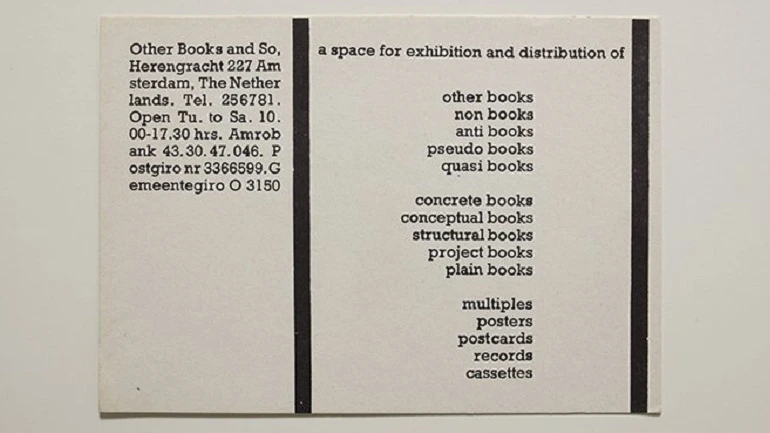
Held on 21 Sep 2016
This seminar analyses the role of Ulises Carrión (Mexico, 1941 - Holland, 1989) in conceiving new strategies to disseminate and distribute art from the mid-seventies, and the emphasis he placed on reinventing the uses, forms and appearances of the book as a device for action. It also looks to acknowledge and highlight Carrión’s capacity for conceiving publishing as a relational practice and understanding the archive as a set of performance protocols from which to reorder, or at least shake up, the art system.
Carrión’s awareness of and interest in new art forms and innovative trends propelled him to actively participate in the majority of the artistic disciplines of his time. His diverse works mix and combine, and become distanced from one another to form an indissoluble ensemble reflected in the entirety of his works as a writer, poet, essayist, artists’ book author, creator of videos and films, founder of the bookshop-gallery Other Books and So, editor, organiser of exhibitions and diverse projects, collector, much to his regret, and a pioneer in various works in the international Mail Art community, together with artists such as Clemente Padín and Felipe Ehrenberg, during his most creative period. Therefore, his artistic figure and approaches are in force in current and pressing debates on the production, circulation and reception of knowledge or issues related to archive.
Halfway through the 1970s, Carrión established himself Amsterdam, founding in 1975 Other Books and So, which he turned into an archive in 1979; an experimental and experiential centre articulated around a concept of the archive as an acting, living and relational element. With this initiative he transformed the constitutive identity of the archive - accumulation, organisation, systemisation and homogenisation - into a series of strategies for approaching artistic activity as a life exercise. Another of his concerns was “breaking free” from literature and putting forward liberated writing linked to the critique of the meaning of avant-garde movements throughout history, so as to appropriate the book and publishing as artistic materials. “Dear reader. Don’t read”, one of his most widely recognised aphorisms and the title of the exhibition held alongside this seminar, explores his perpetual challenges, the will to construct and deconstruct.
In collaboration with
Organised by
Museo Reina Sofía
Más actividades
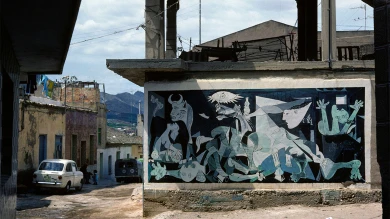
Rethinking Guernica
Monday and Sunday - Check times
This guided tour activates the microsite Rethinking Guernica, a research project developed by the Museo Reina Sofía’s Collections Area, Conservation and Restoration Department and the Digital Projects Area of the Editorial Activities Department, assembling around 2,000 documents, interviews and counter-archives related to Pablo Picasso’s painting Guernica (1937).
The visit sets out an in-situ dialogue between the works hung around the painting and a selection of key documents, selected by the Museo’s Education Team and essential to gaining an idea of the picture’s historical background. Therefore, the tour looks to contribute to activating critical thought around this iconic and perpetually represented work and seeks to foster an approach which refreshes our gaze before the painting, thereby establishing a link with the present. Essentially revisiting to rethink Guernica.

CLINIC 2628. A Community of Writing and Research in the Arts
February – October 2026
Clinic 2628 is a project which supports and brings together writings which stem from the intention to offer a space and sustainable time for research work in art and culture. Framed within an academic context which is increasingly less receptive to the forms in which thinking happens and is expressed, the aim is to rescue the academic from its neoliberal trappings and thus recover the alliance between precision and intuition, work and desire. A further goal is to return writing to a commons which makes this possible through the monitoring of processes and the collectivisation of ideas, stances, references and strategies.
The endeavour, rooted in a collaboration between the Museo Reina Sofía’s Studies Directorship and the Artea research group, via the i+D Experimenta project, is shaped by three annual editions conceived as spaces of experimentation, discussion and a demonstration of writings critical of what is put forward by today’s academia.
What forces, forms and processes are at play when writing about art and aesthetics? In academia, in museums and in other cultural institutions, the practice of writing is traversed by productivist logics which jeopardise rhythms of research and experimentation. The imposition of both scientism inherent in the structure of “the paper” and the quantifying of results which demand a criterion of quality and visibility sterilise and smoothen, from the outset, the coarseness that is particular to writing understood from the concrete part of language: phonic, graphic, syntactic and grammatical resistance connecting the language user to the community the language unites and activates. They also sterilise the roughness enmeshed in the same desire to write, the intuitive, clear and confusing pathways that once again connect the writer to those reading and writing, participating in a common good that is at once discovered and produced.
The progressive commercialisation of knowledge propelled by cognitive capitalism moves further away from the research and production of knowledge in artworks and artistic languages and practices. The work of curators and archive, criticism, performances and essays formerly saw a horizon of formal and emotional possibilities, of imagination that was much broader when not developed in circumstances of competition, indexing and impact. Today, would it be possible to regain, critically not nostalgically, these ways; namely, recovering by forms, and by written forms, the proximity between art thinking and its objects? How to write in another way, to another rhythm, with no more demands than those with which an artwork moves towards different ways of seeing, reading and being in the world?

Cultural Work
Thursday, 12 February 2026 – 5:30pm
This series is organised by equipoMotor, a group of teenagers, young people and older people who have participated in the Museo Reina Sofía’s previous community education projects, and is structured around four themed blocks that pivot on the monstrous.
Session number two looks to approach film as a place from which cultural work is made visible and processes of production engage in dialogue with artistic creation. From this premise, the session focuses on exploring how audiovisual content is produced, assembled and distributed, from the hands that handle the images to the bodies that participate in its circulation. The aim is to reflect on the invisible effort, precarity and forms of collaboration that uphold cultural life, that transform the filmic experience into an act that recognises and cares for common work.
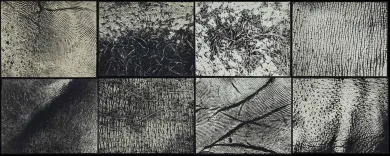
The (legal) person and the legal form. Chapter II
8, 12, 15 January, 2026 – 16:00 to 19:00
As part of the Studies Constellation, the Study Directoship’s annual fellowship, art historian and theorist Sven Lütticken leads the seminar The (Legal) Person and the Legal Form: Theoretical, Artistic, and Activist Commitments to foster dialogue and deepen the hypotheses and questions driving his research project.
This project, titled Unacting Personhood, Deforming Legal Abstraction, explores the dominance of real abstractions—such as exchange value and legal form—over our processes of subjectivation, and asks how artistic practices can open up alternative ways of representing or performing the subject and their legal condition in the contemporary world.
The seminar consists of eight sessions, divided into three chapters throughout the academic year. While conceived as non-public spaces for discussion and collective work, these sessions complement, nourish, and amplify the public program of the Studies Constellation.
In this second chapter of the seminar, the inquiry into the aesthetics and politics of legal form continues with three sessions that pick up the discussions held in Chapter I but propose new lines of flight. The first session focuses on international law via the writings of the British author China Miéville, which allows us to reconsider the notion of the legal form –following Evgeny Pashukanis— and, through it, a variety of (people’s) tribunals. While the crucial concept of the legal person –as the right-holder central to the form of law— was debated in Chapter I, the second session focuses on attempts to extend personhood not (just) to corporations, but rather to nonhuman animals or ecosystems. Finally, the third session poses the question: how can groups and networks use officially recognized organizational forms (such as the foundation or the cooperative) and/or use a collective persona (without necessarily a legal “infrastructure” to match) to act and represent themselves?
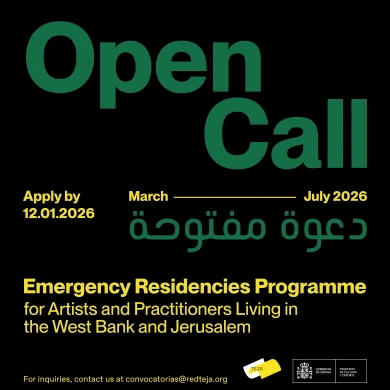
TEJA 2026. Open Call for Emergency Art Residencies
Proposal submission until 12 January, 2026
TEJA / Red de espacios culturales en apoyo a situaciones de emergencia [Network of Cultural Spaces in Support of Emergency Situations] has the mission to promote transnational cooperation by offering temporary art residencies to artists and cultural practitioners who find themselves in complex socio-political situations in their countries of origin. During their stay in Spain, residents receive accommodation, legal and psychological counseling, and access to a network of organizations and professionals with whom they can share, develop, and continue with their creative projects. The goal is to provide a safe and stimulating environment where artists can continue their work despite adverse circumstances and generate dialogue spaces that ensure freedom of expression through joint activities both in Spain and with international collaborators.
During 2026, TEJA hosts three new residencies, each lasting three months, dedicated to supporting artists and cultural practitioners residing in the West Bank and Jerusalem. In addition, in the second half of the year, TEJA hosts three additional residencies for Gazan artists, which are offered by invitation (as Spain is currently unable to facilitate evacuations from Gaza, these invitations are coordinated through France). These residencies aim to provide a stable, creative environment and foster artistic exchange in the face of ongoing adversities. Through this new program, TEJA reaffirms its commitment to amplifying Palestinian voices and empowering artists as they navigate these turbulent times.
The selection is carried out by the TEJA network in close collaboration with each hosting partner. This year the hosting partners are: La Escocesa (Barcelona), hablarenarte / Planta Alta (Madrid), Espositivo (Madrid), Institute for Postnatural Studies (Madrid), Casa Árabe (Córdoba). The selection prioritizes the artist’s personal and professional situation first, and then the alignment with the practices and themes of the hosting spaces. Proposal submission deadline is January 12th, 2026, 23:59 h.
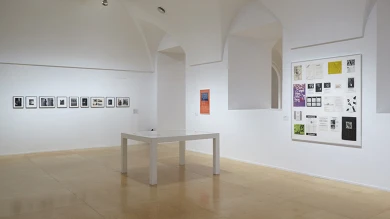
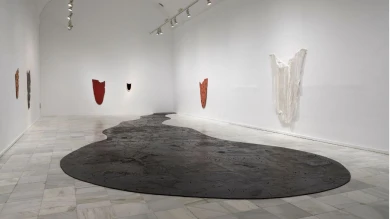
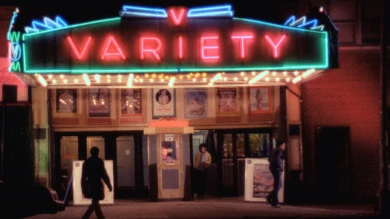
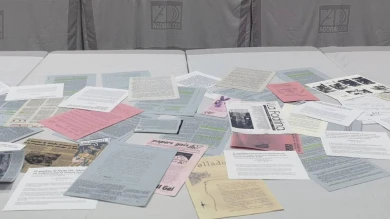
![Miguel Brieva, ilustración de la novela infantil Manuela y los Cakirukos (Reservoir Books, 2022) [izquierda] y Cibeles no conduzcas, 2023 [derecha]. Cortesía del artista](https://recursos.museoreinasofia.es/styles/small_landscape/public/Actividades/ecologias_del_deseo_utopico.jpg.webp)
![Ángel Alonso, Charbon [Carbón], 1964. Museo Reina Sofía](https://recursos.museoreinasofia.es/styles/small_landscape/public/Actividades/perspectivas_ecoambientales.jpg.webp)